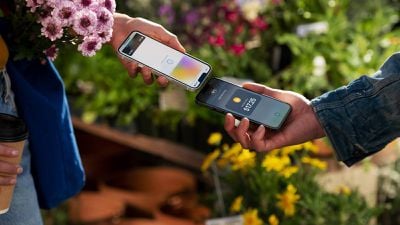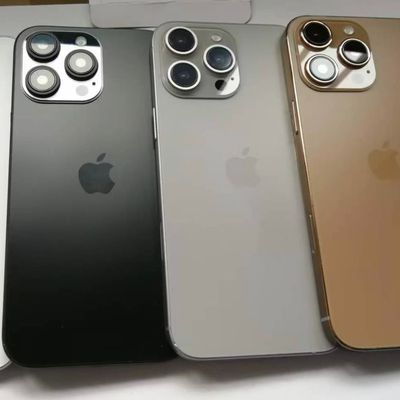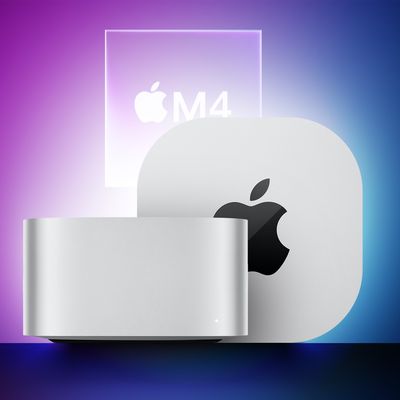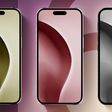Apple Announces 'Tap to Pay' Feature Allowing iPhones to Accept Contactless Payments Without Additional Hardware
Apple today announced plans to introduce a new "Tap to Pay on iPhone" feature that will allow compatible iPhones to accept payments via Apple Pay, contactless credit and debit cards, and other digital wallets, with no additional hardware required.

Apple said the feature will launch in the U.S. later this year and will allow merchants to accept contactless payments through supported iOS apps using an iPhone XS or newer. At checkout, the merchant will simply prompt the customer to hold their own iPhone or Apple Watch, contactless credit or debit card, or other digital wallet near the merchant's iPhone, and the payment will be securely completed using NFC technology.
Currently, merchants that accept contactless payments on an iPhone must rely on additional hardware like the Square Reader, which comes in various models that work wirelessly or connect to an iPhone's Lightning connector or headphone jack.
Stripe will be the first payment platform to offer "Tap to Pay on iPhone" to their business customers, including the Shopify Point of Sale app this spring, and additional payment platforms and apps will follow later this year, according to Apple. Apple Stores in the U.S. will also roll out the feature later this year. It appears that the feature will be exclusive to the U.S. at launch, with no other countries mentioned.
Bloomberg's Mark Gurman exclusively revealed that Apple was planning this feature last month.
Popular Stories
Leaker Sonny Dickson is back today with a new dummy unit image showing all four iPhone 16 Pro color variants, including the rose gold or "bronze" unit that replaces Blue Titanium in the existing iPhone 15 Pro models. The iPhone 16 Pro models are expected to come in black, white or silver, gray or "Natural Titanium," and a rose or rose gold color replacing Blue Titanium, according to Apple...
Multiple rumors have suggested that the iPhone 16 models are going to have an all-new button that's designed to make it easier to capture photos when the devices are held in landscape mode. Apple calls the button the Capture Button internally, and it is going to be one of the most advanced buttons that's been introduced to date with support for multiple gestures and the ability to respond to ...
Apple typically releases its new iPhone series in the fall, and a possible September 10 announcement date has been floated this year, which means we are just one month away from the launch of the iPhone 16. Like the iPhone 15 series, this year's lineup is expected to stick with four models – iPhone 16, iPhone 16 Plus, iPhone 16 Pro, and iPhone 16 Pro Max – although there are plenty of design...
Apple's iPhone 16 series is expected to debut in September 2024. This release follows Apple's trend of introducing new iPhone models annually in the fall. While the exact date has yet to be officially confirmed, the day of Tuesday, September 10 has been rumored as a possible announcement date, and September has traditionally been the month when Apple unveils its latest smartphone innovations. ...
Apple is moving forward with its project to develop a tabletop robotic device, according to Bloomberg's Mark Gurman. Subscribe to the MacRumors YouTube channel for more videos. The device would feature a large iPad-like display mounted on a "thin robotic arm" that would allow the display to tilt and up and down and rotate a full 360º, and it would serve as a "smart home command center," a...
It's almost September, but Apple still has multiple new product launches planned for 2024. New iPhone 16 models and Apple Watches are coming in September, and we're also going to get at least three Mac updates with M4 chips this year, according to rumors. Here's what's on the horizon. MacBook Pro Apple plans to refresh both the 14-inch and 16-inch MacBook Pro models, adding M4 chips. The ...
T-Mobile was fined $60 million by the Committee on Foreign Investment in the US (CFIUS) for negligence surrounding data breaches, reports Reuters. CFIUS penalized T-Mobile for failing to prevent or disclose unauthorized access to sensitive customer data. When T-Mobile merged with Sprint, it signed a national security agreement with CFIUS, which is what led to the fine earlier this year....





















